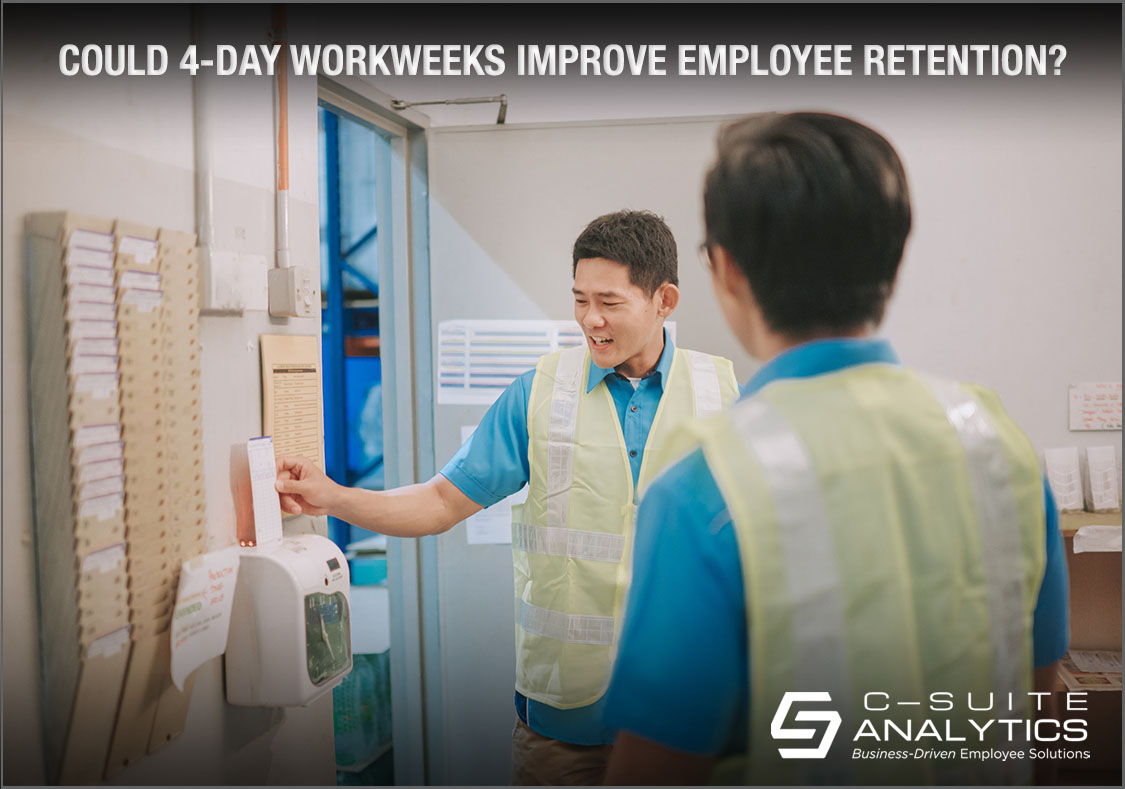According to the National Education Association, a full 600,000 teachers have already left teaching since January 2020, and a recent NEA poll indicated 55% more will quit prematurely. So, teachers are fast becoming a very talented recruiting pool.
The Data Says…Stay Interviews Beat Engagement Surveys

More Distrust in Engagement Surveys than Stay Interviews
A recent SHRM report tells us…
“A rising level of worker mistrust is leading to less-than-honest responses on engagement surveys. More workers now fear consequences for being candid, and others are skeptical that their feedback will be used to make any meaningful change in the workplace.”[i]
Their data grabs the eye. Just 29% of employees trust their organizations with data collected through “common feedback processes and technologies” according to a 2021 Gartner survey. So what happens when the remaining 71% of your survey data is bunk? When the great majority of the information you read in employee survey reports is full of lies?
I’ve reported before that Gallup tells us employee engagement results have been virtually stuck since 2000, that there has been virtually zero improvement since Gallup began tracking employee engagement data way back then. Combine this with Deloitte’s finding that U.S. companies spend $1.53 billion each year to improve engagement…and what do these two vital research findings from highly-respected sources tell us? That something is way, way off with the methods U.S. companies manage employee engagement.
Until today, I thought that “something” was companies completely whiffing on understanding that the top employee engagement driver is their first-line supervisors rather than the plethora of one-size-fits-all employee programs that litter our corporate landscapes…things like career days, employee appreciation week, and company clocks. Or said simply, that you cannot improve engagement if you don’t train your supervisors to improve it and hold them accountable for it.
But now we have a new red flag, that companies are trying to increase engagement based on false data. That their starting location in their efforts to fix engagement is on the other side of the earth.
What One Statistic Tells Us Stay Interviews Are Better?
That Stay Interviews improve turnover by 20% and more. Even during The Great Resignation. And our clients’ results tell that story.
A visit to our website discloses three examples of companies where we’ve helped cut turnover that much and more during 2021, and we purposely selected organizations in industries where turnover is hardest to fix:
- Food processing: Wayne Farms chicken processing turnover is down 22%, new-hire retention up 21%, total dollar savings of $2.3 million in 2021 with far greater savings into 2022.
- Waste services: Improved Waste Connections total turnover and new-hire retention in one pilot plant by 30% saving $240 thousand, now working across their corporation to do the same.
- Healthcare: Helped New England-based Covenant Health reduce turnover by 22%, saving $2.8 million.
For more results from a variety of industries, check out our recent blog.
While each client has impressive retention stories to tell, perhaps Covenant Health faced the steepest uphill climb. Covid burnout hangs heavy across their three hospitals and twelve post-acute centers, combined with the steady barrage of recruiter calls to draw nurses and other professionals to less-stressful doctor office work…or to more lucrative agency jobs. Yet turnover keeps going down while competing healthcare companies’ turnover is going up.
Why Are Stay Interviews More Truthful?
Because Stay Interviews are delivered by humans…and those humans have first developed skills. We train our client company leaders…all leaders including first-line leaders…to ask just five questions. After asking each question those leaders listen for important answer clues, probe to learn their deeper meanings, and take notes to ensure all important points are preserved. Let’s look at those three skills more closely:
- Listening means providing focus on their employee’s key words, gathering the most important messages coming back as the result of the just-asked question; listening is active, focused, and attentive…and the opposite of hearing.
- Probing requires listening so carefully that you know which key words and messages to pursue more deeply; If you stay because of our team, what are the names of the teammates you stay for? If you consider leaving because you can’t master the skills of your job, which skills need help so I can make you feel like a winner? Good probing converts five questions into 20 questions.
- Taking notes means your messages are important to me…and I’m going to refer to my notes immediately so I can ask the right probing questions and then later in our session so we can develop the absolutely best stay plan.
Will some employees tell half-truths during Stay Interviews? Probably…but not nearly as often as the 79% who are lying on engagement surveys. And the proof is the great majority of employees must be telling their deepest truths if their leaders are then solving their individual issues such that turnover is consistently decreasing by 20% and more. And all during The Great Resignation.
C’mon, America. My Great Clips closed early last week so I couldn’t get a haircut, and my YMCA is down to opening just four nights per week…all because they can’t recruit and retain enough staff. We can all do better.
More Than Ever Stay Interviews are Key for Employee Retention
Schedule a conversation with me at DFinnegan@C-SuiteAnalytics.com to discuss your employee retention roadblocks and I’ll share ideas for how you can move forward and what is working for other companies to cut turnover by 20% and more, even during The Great Resignation that may benefit you.
[i] https://www.shrm.org/ResourcesAndTools/hr-topics/technology/Pages/Worker-Mistrust-Leads-Flawed-Data-Engagement-Surveys.aspx?utm_source=marketo&utm_medium=email&utm_campaign=editorial~Talent~NL_2022-04-27_Talent-Management&linktext=Worker-Mistrust-Leads-to-Flawed-Data-in-Engagement-Surveys&mktoid=49296740&mkt_tok=ODIzLVRXUy05ODQAAAGECv870dvgt1OcxpuwiRixifsr5xDT3JbePN59qKiLRa3kStpbb7YSg_zMwJZwDPDUZvIhLq7uwTPUeJUNXeGsejH5f2-EcX9XRs61sVBNnI5whA



